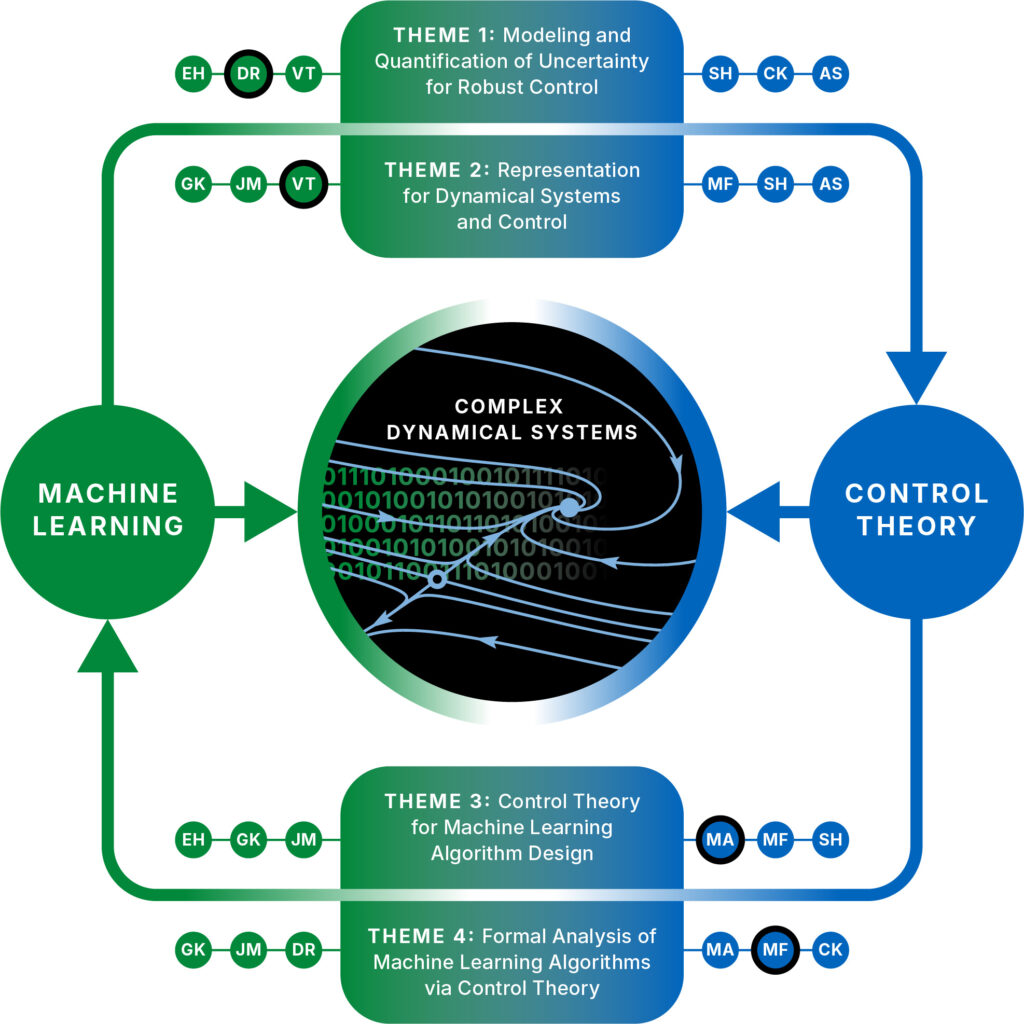Overview
The research program focuses on two main directions: first, how ML can support the data-driven design of robust control for complex, safety-critical applications (“ML for CT”), and second, how concepts and methods of CT can contribute to the improvement of ML algorithms (“CT for ML”). Both directions are approached from the perspective of complex dynamical systems that form a common mathematical framework. The research addresses four main topics: (1) modeling and quantifying uncertainty for robust control, (2) representations for dynamical systems and control, (3) control theory for designing machine learning algorithms, and (4) formal analysis of machine learning algorithms using control theory.
METEOR’s qualification program places a strong emphasis on interdisciplinarity. Currently, engineering students often have a solid background in calculus, differential equations and scientific computing, while computer scientists and statisticians are usually well versed in optimization, data analysis and ML. However, the interdisciplinary understanding between ML and CT is usually limited. A newly designed lecture “Machine Learning and Control Theory” as well as research-oriented seminars and a reading and writing club are therefore intended to create a common language and basic understanding between the two disciplines. Innovative measures such as interdisciplinary workshops and annual hackathons build a further bridge between ML and CT and provide practical experience. In order to prepare graduates for a successful career in science and industry, the program is rounded off with targeted soft skills courses and international research stays.

